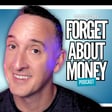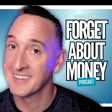
🔥 FATFIRE, Smart, and Happy: Leif Dahleen's Financial Independence Journey 😊
Watch this episode on YouTube and subscribe
🎙️ David Baughier sits down with Dr. Leif Dahleen, the renowned Physician on FIRE, to discuss achieving financial independence through prudent financial management.
Dr. Leif Dahleen, a retired anesthesiologist, shares his journey from a high-earning medical professional to financial independence and early retirement.
He provides insights on transitioning from a demanding career, the importance of financial planning, and the benefits of a frugal yet fulfilling lifestyle. 🌟📈
🔑 Key Topics Discussed:
⇨ Leif’s journey to financial independence and early retirement
⇨ The challenges and rewards of a high-paying medical career
⇨ The role of frugality and prudent financial management
⇨ Transitioning from a medical career to retirement
⇨ Advice for those seeking financial independence
🔗 Leif Dahleen’s Links:
🔗 David's Links:
🍏 Forget About Money on Apple Podcast
🎧 Forget About Money on Spotify
🕒 Timestamps/Chapters:
0:00 - 🚀 Introduction to Financial Independence Journey
1:17 - 💡 Discovering Financial Independence
2:25 - ⚖️ Immediate Changes After Epiphany
3:05 - 📅 Crafting a Five-Year Plan
5:11 - 📚 Transitioning to Financial Independence Knowledge
10:45 - 💭 Shifting Mindset and Desires
14:12 - 🏥 Unique Challenges in Medical Profession
16:09 - 👤 Identity and Transitioning from Career
16:35 - 🧠 Challenges of Ego and Identity in Retirement
17:16 - 🌅 Transition to Full Retirement
19:40 - 👪 Coping with Retirement and Relationships
21:17 - 🌍 Enjoying Family Adventures
24:34 - 🏡 Building and Finalizing a New Home
28:02 - 🩺 Missed Aspects of Being an Anesthesiologist
30:03 - ⏱️ Transition to New Job as a Timer
38:18 - 💻 Inception of Physician on FIRE Blog
40:11 - 🌟 Rewards of Building FI Community
43:36 - ⚖️ Balancing Work and Family Priorities
46:43 - 🔄 Reflections on Career Path if Not Anesthesiologist
47:45 - 💸 Managing Debt During Medical School
51:50 - 📝 Advice for Starting Financial Independence Journey
#️⃣ Hashtags:
#FinancialIndependence #EarlyRetirement #PhysicianOnFIRE #MedicalProfession #Frugality #FinancialPlanning #FIJourney #FamilyTravel #PersonalFinance #RetirementPlanning #FICommunity #MoneyManagement
🎧 Listen & Subscribe: Don’t forget to subscribe to "Forget About Money" for more insightful episodes featuring experts who guide you on safeguarding your finances and making informed decisions. Hit the bell icon 🔔 to get notified of new episodes!

